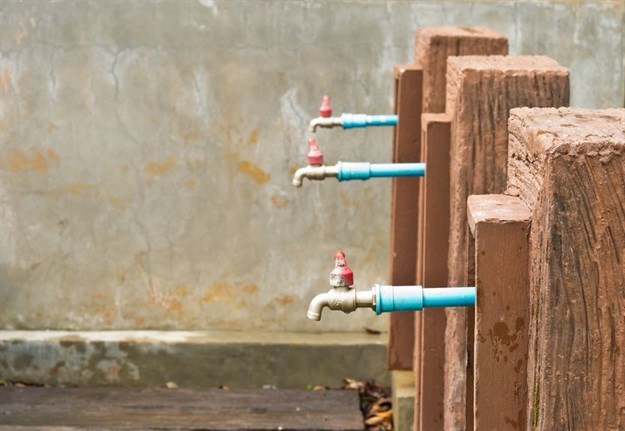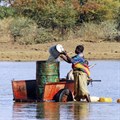Millions of Africans still suffer from water shortages due to problems of uneven distribution and management of existing supplies, while currently 40% of soil in Africa is degraded making managing water and land resources even more key in face of climate change.
This was one of the topics discussed at the recent Fourth Africa Climate Resilience Investment Summit (ACRIS IV) that took place at the Sandton Convention Centre by a panel of experts chaired by Benoit Bosquet, director – environment and natural resources, World Bank Group (WBG).
“Africa’s natural resource base - land and water – remains the livelihood for the majority of the continent’s inhabitants, but land and water are the places where climate change is visible, and its effect is felt - through droughts, floods, the loss of arable land, disease, poverty and loss of food security and the destruction of families,” said Bosquet.
“Most African countries rely on agriculture and irrigation through rainfall. This is low water efficiency and one of many issues that require us to identify what the problem is and then find a good solution that is climate resilient,” said Islam Sabry Al Zayed, researcher and senior technical officer of the National Water Research Centre (NWRC).
Variability in time and space
For panel member Leonard Magara, projects director, Climate Resilient Infrastructure Development Facility (CRIDF), climate change means variability in time and space, that is extremes from droughts to floods.
“This means South Africa will have water at times, and then it will not. If the core of resilience is infrastructure that is planned and implemented responsibly, then we need to do so in the case of water as we will need infrastructure to store and transport water to people when there is none.”
Panel member Alex Simalabwi, executive secretary - GWPSA, global lead - water climate resilience and head of Africa Coordination Unit, Global Water Partnership, says that despite working in this field for many years, he has seen little progress over the last two decades in water management despite the many initiatives, national and global programmes.
“Water is not just drinking water and sanitation. That is a very narrow view of the story of water. Water is more than that; it is critical to the functioning of the economy of a country, but its role in the economy is not appreciated. The narrative around water needs to change to reflect this,” he said.
Government mindset must move beyond short-term profit
Weighing in on this, panellist Mamphela Ramphele, co-president, Club of Rome, said Cape Town should have brought home to all of us what is happening. “Our mindset has to change from short term gains to long term sustainability. Governments’ mindset must move beyond short-term profit when approaching projects, such as mines, to the long-term implications.”
The time has come, she said, to shift the conversation from extracting from nature to new ways of thinking about human civilisation living in harmony with nature. “Funding to create climate resilience to climate change is part of this, but unless we reframe the discipline of finance from a focus on GDP to beyond GDP to a focus on well-being and sustainability, that will not happen.”
The main aim of the Summit is to attract international private investors and development agencies to invest in infrastructure resilient projects in Africa. The summit was hosted by GRV Global with key partners the World Bank Group, Nordic Development Fund (NDF) through the Africa Climate Resilient Investment Facility Partnership (AFR-RES) and the United Nations Economic Commission for Africa (ECA).





























